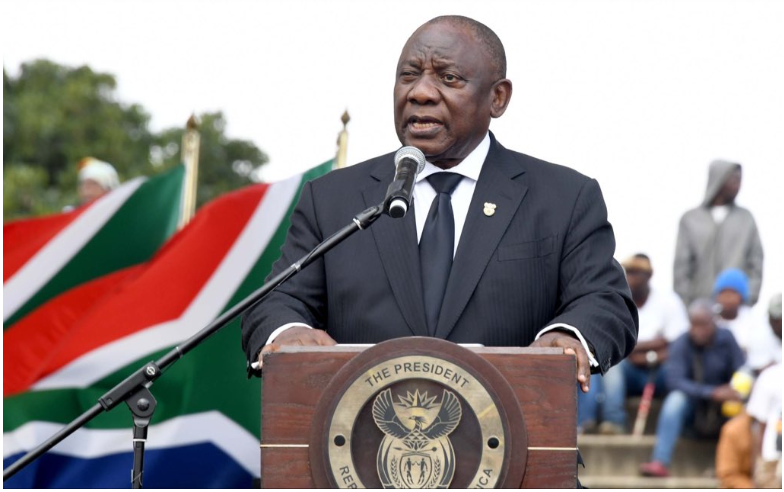 South African President Cyril Ramaphosa addressed the National Assembly in a session focused on current national challenges. The president’s appearance was part of his regular engagement with lawmakers, offering a platform to discuss pressing concerns, ranging from the economy and energy crisis to corruption and social development.
South African President Cyril Ramaphosa addressed the National Assembly in a session focused on current national challenges. The president’s appearance was part of his regular engagement with lawmakers, offering a platform to discuss pressing concerns, ranging from the economy and energy crisis to corruption and social development.
At the forefront of the discussions was South Africa’s ongoing economic recovery in the wake of the COVID-19 pandemic and other global challenges. President Ramaphosa acknowledged the struggles many South Africans face, with unemployment rates remaining stubbornly high, especially among the youth. He reaffirmed his administration’s commitment to attracting foreign investment, promoting entrepreneurship, and implementing key structural reforms to stimulate job creation.
The president highlighted ongoing infrastructure projects aimed at reviving economic growth, with particular focus on transportation, energy, and digital connectivity. He noted that several key partnerships, both local and international, were driving progress, but acknowledged that more needs to be done to realize the country’s full economic potential.
Another major issue discussed was South Africa’s persistent energy crisis, which has been crippling the country for years. Ramaphosa addressed the concerns around load shedding and Eskom’s operational failures. He reiterated that the government is working closely with Eskom to stabilize energy production and distribution. Part of the strategy involves diversifying the energy mix, with an emphasis on increasing renewable energy projects and fast-tracking the transition to greener alternatives, such as solar and wind power.
Ramaphosa also touched on plans to bring independent power producers (IPPs) on board to alleviate pressure on the national grid and reduce the frequency of load shedding. He emphasized the importance of energy security as key to unlocking further investment and economic growth.
In light of South Africa’s high-profile corruption scandals in recent years, the president reaffirmed his administration’s dedication to rooting out corruption within public and private sectors. He discussed the steps being taken to strengthen institutions like the National Prosecuting Authority (NPA) and the Special Investigating Unit (SIU), both of which are playing pivotal roles in bringing corrupt individuals to justice.
Ramaphosa stressed that accountability and transparency would remain central pillars of governance, and he encouraged both government officials and citizens to support ongoing efforts to eliminate graft. He also expressed hope that recent arrests and prosecutions would serve as a deterrent against future misconduct.
Addressing social challenges, Ramaphosa pointed to the wide gap between rich and poor in South Africa as an urgent issue requiring targeted interventions. The president spoke about the government’s commitment to improving access to quality education, healthcare, and housing. He highlighted initiatives aimed at providing social relief for vulnerable groups, including grants, job training programs, and small business support.
He also acknowledged the importance of fostering social cohesion in a nation still grappling with the legacies of apartheid, calling for unity and collaboration among citizens from all walks of life.
As the session concluded, President Ramaphosa expressed optimism about South Africa’s future, despite the challenges ahead. He called on members of the National Assembly to work together constructively, putting the needs of the people above partisan politics. Ramaphosa urged continued dialogue and cooperation in addressing the nation’s most pressing concerns, particularly in relation to the economy, energy security, and governance.
This engagement reinforced his administration’s focus on creating an inclusive, resilient, and prosperous South Africa. However, the road ahead remains complex, and it will require concerted efforts from all sectors of society to achieve the desired outcomes.

